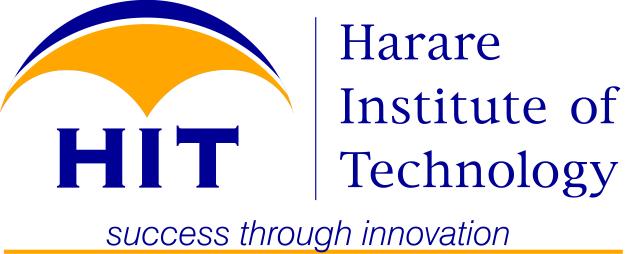
The Sunday Mail

 Enacy Mapakame – Business Reporter
Enacy Mapakame – Business Reporter
THE Harare Institute of Technology (HIT), a local technical college, has begun the commercial production of pharmaceutical drugs using native plants in a development that is likely to substitute expensive imports.
The drugs are expected to hit the market in the first quarter of 2015 after the necessary approvals are obtained from the Medicines Control Authority of Zimbabwe (MCAZ).
An outlet that will retail the products will initially be opened at the college’s premises.
HIT pharmaceutical technology development lecturer Mr Joey Chifamba, whose department is spearheading the project, said the institution will manufacture both prescription and over-the-counter products ranging from cosmetics, dermatological applications and other oral medicines.
He said the programme was inspired by the need to commercialise indigenous knowledge systems through formulating products from locally available and known medicinal plants.
“Our thrust is to equip students with hands-on knowledge on manufacturing of products and contribute to Zim Asset by value adding on what we already have in Zimbabwe.
“Most drugs are imported yet we can come up with alternatives to that.
“Through partnerships with industries, we are trying to develop local alternatives to medicine.
“We also need to inform our communities on indigenous knowledge systems, how they can use trees available in their areas for sustainable development,” said Mr Chifamba.
The institute has been working with pharmaceutical regulators, the MCAZ, Ministry of Health and Child Care and the Pharmaceutical Association of Zimbabwe in its quest to bridge the gap in local production of drugs.
“We are mindful of the needs of the people; they want cosmetics and skin care products with herbal components and we are responding to those market needs,” said Mr Chifamba in a recent interview.
Herbal remedies are gradually graining a significant share on the international market as they are believed to be much safer than other synthetic chemicals.
Brands like the Chinese Tiense are widely used and accepted in Zimbabwe.
HIT is also working on a programme to analyse all indigenous herbs in order to develop methods on how best they can be used and packed commercially.
Already, a project is underway where indigenous trees such baobab, marula, aloe, trichilia (muchichiri) and kigelia African (mubve), which is believed to have anti-skin cancer components, are being used to make herbal soaps, ointments, sanitisers and capsules under the brand name Inst Herbs.
In order for the products to be passed for the retail market, the institute is expected to meet World Health Organisation (WHO) standards that are enforced by MCAZ.
These standards include suitable premises and laboratories, registered pharmacists and approved methods and processes in the manufacture of such drugs.
Mr Chifamba said although only two institutions — the University of Zimbabwe and HIT — offer degree programmes in pharmaceutical technology, the industry was poised for growth in the next few years.
Despite the downturn it suffered due to economic challenges, the sprouting of pharmacies in cities is evidence of a growing industry that needs further support from stakeholders for it to realise its full potential.
The Zimbabwe pharmaceutical sector is believed to be second in terms of size and development to South Africa in the SADC region.
It produces more than 65 percent of the essential drugs list of Zimbabwe.
According to a ZimTrade report that was released by the pharmaceuticals sector in 2012, the local industry contributed about 15 percent to the country’s GDP supporting downstream and upstream industries.
Major players in the industry are Datlabs, Plus Five, Varichem, NatPharm, and Pharmanova.
The sector suffered heavy setbacks when Caps Holdings, one of the biggest players, closed.
There has also been a proliferation of illegal drug imports by unregistered individuals and firms, posing a serious health risk as such imports are not tested for quality or expiration.
The sector, however, faces stiff competition from South Africa and India, whose production costs are relatively lower, hence making prices of their drugs more competitive on the global market.
HIT has been pioneering many technologies it hopes can be adopted for industrial use.
In June, the institute successfully filed its first patent for the Preparation of Adansonia digitata flavoured Soy milk-based yoghurt with the African Regional Intellectual Property Organisation (ARIPO).
Mr Perkins Muredzi, Dean of the School of Industrial Sciences and Technology, invented the patent filed with application number AP/P/2014/007647 and accorded 22/05/14 (priority date) as its filing date.
The patent is now awaiting final processing and publication and will be protected in over 16 countries under the ARIPO protocol and the application has also designated Botswana and Namibia for exclusive protection.
It is believed the invention relates to a method of manufacture of Adansonia digitata-flavoured Soy milk-based yoghurt from soya beans or soybean meal.
Soy yoghurt, whose main raw material is soy milk, contains less fat than yoghurt made with whole cow’s milk.
Soya beans are less expensive and more abundant than bovine milk, and do not contain cholesterol.
HIT was established in 1988 as a National Vocational Training Centre (NVTC), but is has since developed into a technical college offering courses in automotive, electrical and mechanical engineering.
It was granted degree-awarding status in 2005 with the promulgation of the Harare Institute of Technology Act (Chapter 25:26).



